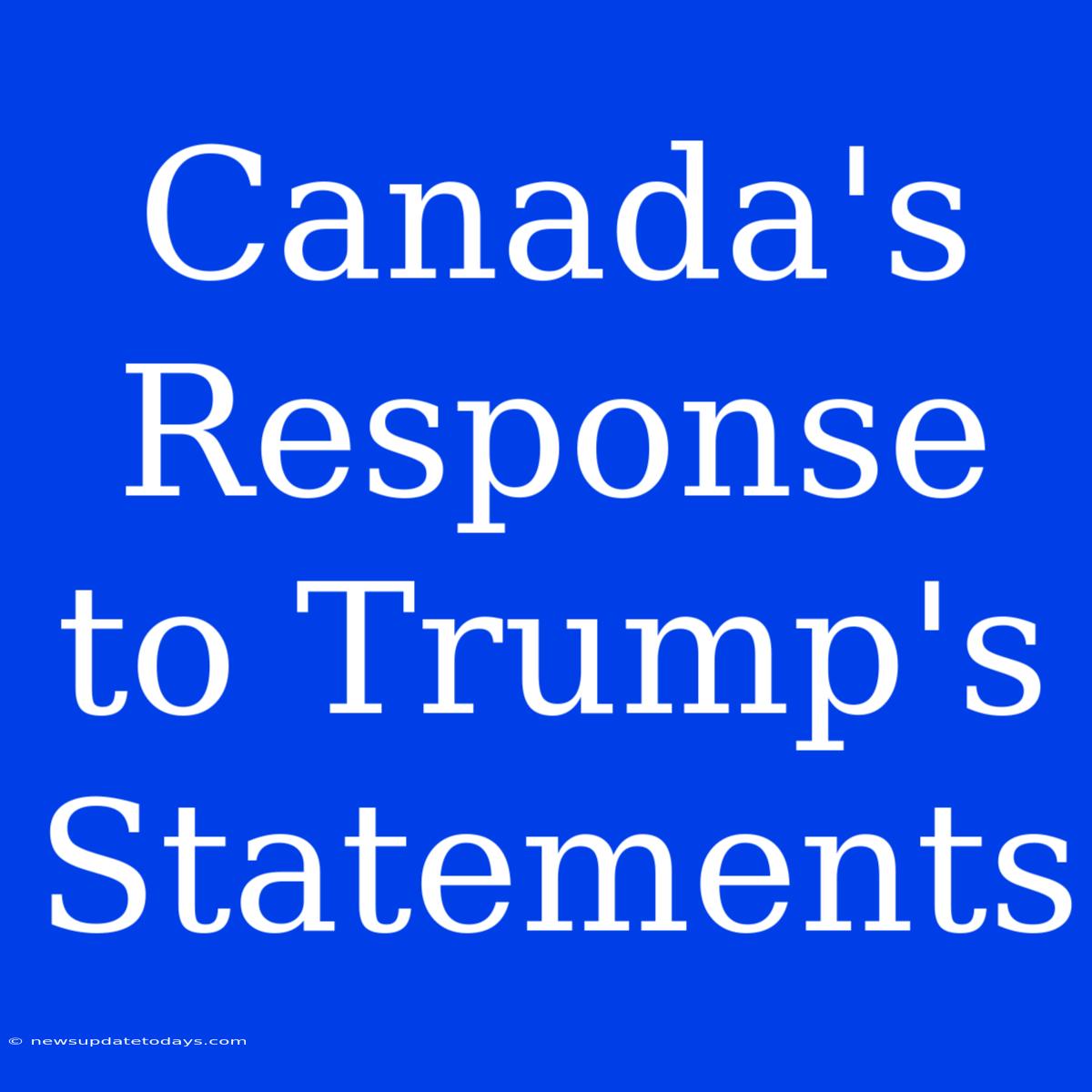Canada's Measured Response to Trump's Statements: A Case Study in Diplomatic Pragmatism
Donald Trump's presidency was marked by unpredictable statements and actions, many of which directly impacted Canada's interests. Canada's response, however, consistently demonstrated a calculated approach prioritizing diplomatic stability and economic pragmatism. This article explores the key instances of Trump's pronouncements affecting Canada and analyzes Ottawa's measured and often understated reactions.
Navigating the Trade Wars: NAFTA Renegotiation and Beyond
Perhaps the most significant challenge posed by Trump's administration was the renegotiation of the North American Free Trade Agreement (NAFTA). Trump's repeated threats to withdraw from NAFTA, coupled with his harsh rhetoric targeting Canadian trade practices, created considerable uncertainty for the Canadian economy. Instead of engaging in tit-for-tat rhetoric, Canada adopted a strategy of quiet diplomacy, working behind the scenes to negotiate a revised agreement (CUSMA) that protected Canadian interests while maintaining a strong trading relationship with the United States. This approach prioritized long-term economic stability over short-term political posturing.
Responding to Tariffs and Sanctions: A Focus on Multilateralism
Trump's imposition of tariffs on various Canadian goods, including softwood lumber and steel, tested the bilateral relationship. Canada, while firmly defending its industries and workers, avoided escalating the situation through retaliatory measures. Instead, it leveraged its strong international relationships, pursuing avenues like the World Trade Organization (WTO) to challenge the tariffs' legitimacy. This multilateral approach highlighted Canada's commitment to rules-based international trade.
Immigration and Refugee Policies: A Clash of Ideologies
Trump's hardline stance on immigration and refugees often clashed with Canada's more welcoming policies. While public disagreements arose, the Canadian government generally avoided direct confrontation, focusing instead on maintaining its own humanitarian principles and highlighting the positive contributions of immigrants to Canadian society. This approach underscored Canada’s commitment to its values while navigating the complexities of the US-Canada relationship.
Environmental Policies: A Divergent Path
Trump's administration's withdrawal from the Paris Agreement and rollback of environmental regulations created a significant divergence from Canada's commitment to environmental protection. Canada, while expressing its disappointment, continued to work with other international partners to advance climate action. This demonstrated Canada’s commitment to international environmental cooperation, regardless of the US stance.
Conclusion: Pragmatism and Long-Term Vision
Canada's response to Trump's statements reveals a strategic approach rooted in pragmatism and a long-term vision for its relationship with the United States. While upholding its national interests and values, Canada consistently prioritized diplomatic stability and economic cooperation. This approach, while potentially criticized for being too passive by some, ultimately proved successful in mitigating the negative impacts of Trump's unpredictable policies and preserving the vital Canada-US relationship. The lessons learned during this period continue to inform Canada's approach to navigating complex geopolitical landscapes.
Keywords: Canada, Trump, US relations, NAFTA, CUSMA, Trade War, Tariffs, Immigration, Refugees, Environmental Policy, Diplomacy, Pragmatism, Multilateralism, WTO.

